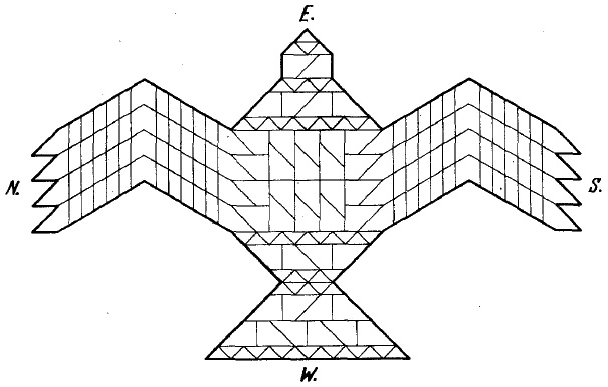Vaiśeṣika and Science

Geometry related to fire-altar construction from Śulbasūtras.
Ideas of philosophy and science are interconnected. Indian philosophers have thought deeply about matter and universe, especially in the Vaiśeṣika school. There has been a significant amount of work on cosmology, constitution of matter and world, psychology, human body, consciousness, mind-matter connection, etc. According to Vaiśeṣika, objects can be classified into six categories: dravya (substance), guṇa (quality), karma (activity), sāmānya (generality), viśeṣa (particularity) and samavāya (inherence). Substances are further divided into nine constituents: pṛthvī (earth), ap (water), tejas (fire), vāyu (air), ākaśa (ether), kāla (time), dik (space), ātman (self or soul) and manas (mind).
Other fascinating aspect of Vaiśeṣika and other schools of Indian thoughts has been on mind and consciousness. These thoughts emphasize on connectedness, and subjective as well as objective reality. They may have relevance for quantum physics. Some of the ideas of Vaiśeṣika may be relevant here.
In the field of history of science, most previous citations have been to Greek civilization. For example, we quote Aristotle’s theory that the world is made of four elements: Earth, Water, Air, and Fire. Ptolemy and Copernicus, among others, are often cited for their work in astronomy. We observe that the Vaiśeṣika system goes much deeper into the structure of matter.
In this project, we will focus mostly on the study of Vaiśeṣika that is closest to science. The approach would be to study this as history of science. We will invite experts in these topics, as well as scientists interested in studying connections between science and philosophy. Interactions would involve a set of lectures and discussions.
Concretely, we propose the following:
- To invite a renowned expert every year to spend a month in IIT Kanpur. The visitor will give a set of lectures and interact with the interested faculty and students.
- To develop a 20 lecture course on “Vaiśeṣika and Science”. We will also attempt to relate Vaiśeṣika with western philosophy.
- To organize a monthly seminar in this field.
- To develop a resource center for this field. These resources would be made available to anyone interested.








